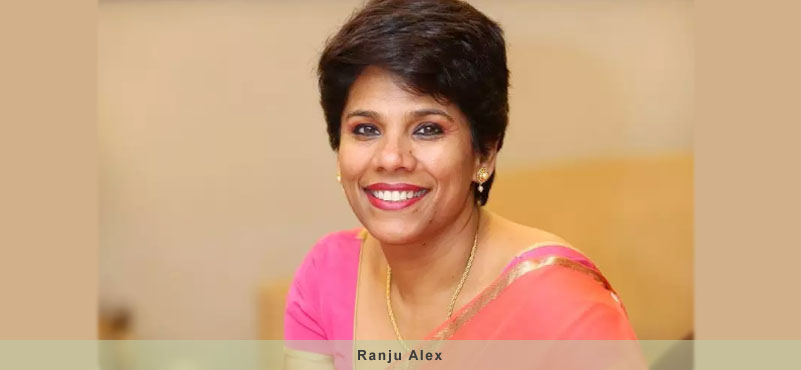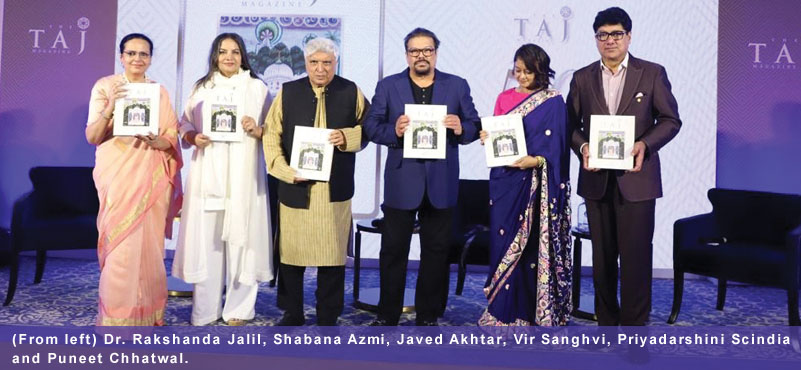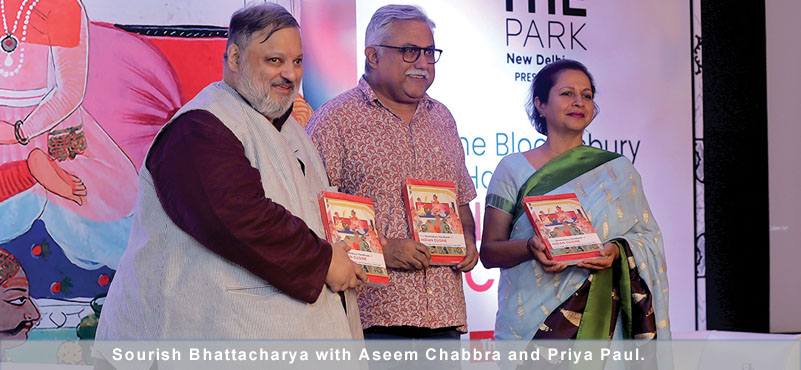AS INDIA SURGES ON ITS ECONOMIC GROWTH; BOTH BUSINESS AND LEISURE TO REMAIN STRONG TAILWINDS
HICSA is an annual hospitality conference now in its 16th year. It brings together the captains of India’s industry across brands. The agenda for the conference not only included traditional topics related to tourism and hospitality but also new age concerns that are likely to impact its future. Therefore, HICSA 2023 was assigned a theme with three A’s – Artificial Intelligence, Astute Investments and Aesthetic Interiors, topics that were discussed in breakout sessions at the conference.
The post pandemic revival of the hospitality industry, challenges ahead and the new trends that are shaping its future formed most of the discussions at the two-day conference.
Some key takeaways
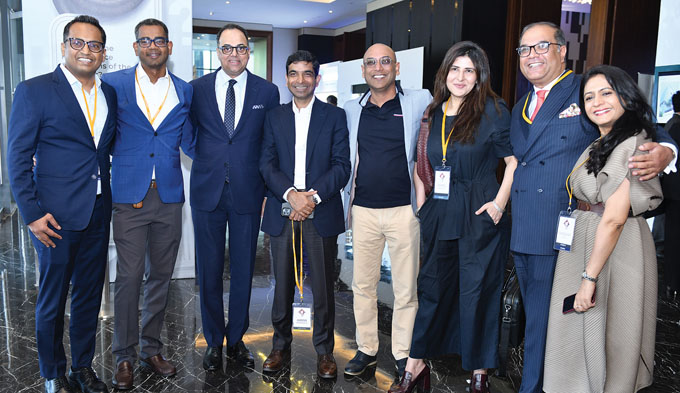
- Hotels across India have seen an astounding surge in performance. They have witnessed 25% or higher growth in RevPar across all segments over year 2019. The last time such levels of growth were seen was before 2008. The overarching belief is that these levels of growth are sustainable and are here to stay. The projection is that business travel will continue to remain strong while the leisure footprint may soften compared to the two pandemic years.
- The growth in per capita levels across the country is acting as a tailwind for the hospitality industry. Hotels are an aspirational commodity and with the increase in disposable income there is bound to be greater demand for travel, hotels, and aviation. This is also the driving factor behind airlines increasing their fleet size and hotel companies developing aggressive expansion plans.
- The next layer of hotel growth will be seen in Tier 2 and Tier 3 cities. With increased connectivity, urbanization and infrastructure development, hotels will have greater access to new, untapped markets. Leisure traffic driven by wildlife and religious destinations located in remote parts of the country will see higher traction.
- It is no surprise then to see that hotel brands have robust expansion plans in place. For example, Marriott International plans to operate 250 hotels in its portfolio in India by 2025. Hilton Worldwide plans to expand from 24 hotels to 75 hotels in India by 2026. Other hotel brands had large growth projections for India.
- Although artificial intelligence technologies have a lot of practical uses and will help enhance the pace and quality of service delivery, it cannot replace personalized, local interactions.
- While management contracts have traditionally dominated new hotel singings in India, franchising as a concept is picking up pace among major hotel brands, both domestic and international.
- A substantial number of hotel developments (approximately 25% of all new developments) in the last year have happened in the form of conversion of existing hotels from independent to branded hotels.
- Among some of the emerging trends that have been seen is the spurt in growth of bleisure travel. Hotels are witnessing higher occupancies on Thursdays and Sundays pointing to the fact that guests are extending their work stays at hotels into the weekend. Furthermore, new hotels, especially those in Tier 2 and Tier 3 cities have a smaller key-count and offer local, authentic experiences.
- When looking at Google trends in the hospitality industry, one of the major findings was that social media is being used extensively by people to discover new places to travel to. Vlogs are being preferred over traditional itineraries and writeups as they offer interactive, visual cues.
- Another encouraging trend being seen is that sustainability is not only about a tick on the checklist. Use of automation, technology and investments in renewable energy is being looked at as a means to reduce costs and increase a hotel’s return on investment.
Breakout sessions:
- Artificial Intelligence: how AI can be leveraged by hotels under different scenarios. AI can be used to enhance guest service delivery by collating information about guest preferences that would enable hotel employees personalise experiences. AI can also be integrated with GDS and online reservation platforms to gain further insight into the hotel’s target audience and design marketing strategies in accordance with that. Furthermore, AI can help derive efficiencies in backend processes enabling the hotel team to focus more on its guests and the experiences they offer.
- Aesthetic interiors: the new mantra being developed by the industry. Building design standards that hotel brands instruct architects and designers to follow can sometimes restrict their creativity in use of unique, localised design elements. Greater flexibility will allow greater use of local materials that will give rise to local architecture gaining prominence. Sustainable construction techniques and materials that are increasingly being deployed to reduce the carbon footprint of new hotel buildings.
- Astute Investments: industry is slated to benefit significantly in the long term due to easy access to capital funding. The positive outlook of the Indian economy is driving investments from countries like the United States and Canada. Companies like Fairfax Financial Holdings and Brookfield Corporation have already invested in Indian hotels and are planning to expand their footprint in coming years. Since hotel investments are capital intensive and require a high gestation period, private equity players are less inclined towards investing in the industry.
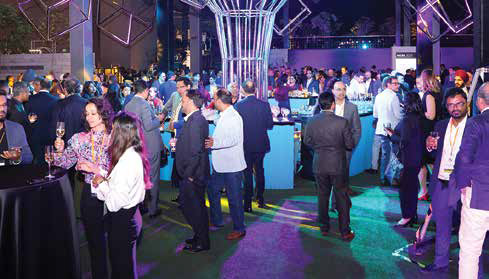 The Challenges Ahead
The Challenges Ahead
While a lot of positive commentary was heard about the industry at large, there were some challenges and risks that were discussed. These included the following:
- Acquisition and retention of talent has become a major challenge. The industry is suffering from high attrition levels due to long working hours and inadequate compensation levels at the grassroot level. Furthermore, there is little being done by hotels to change this trend.
- Hotel owners continue to face regulatory challenges when it comes to setting up new hotels. These challenges may vary from one state to another but the overall ease of doing business in the country needs to improve.
- Accessibility to funding in the form of bank loans is increasingly becoming difficult as the perception is that hotel developments do not generate returns as high as other industries.
- The hospitality industry needs to leverage the use of technology much better. There is a lot to be learnt from the e-commerce and airline industry in terms of use of tech, and revenue management.
Future Outlook
Following the pandemic there has been an increased desire among people to travel. People are far more inclined today to see new places and experience different cultures than they were in the past. While the hybrid work culture has its merits and efficiencies, corporate travel has picked up pace with people realizing that personal interactions are an integral part in conducting business.
The Indian economy is pegged to be one of the world’s most prominent growth engines at a time when mature economies world over face the prospect of recession. A burgeoning young population, complimented by fast sustainable infrastructure growth is driving demand across industries and hotels are an obvious benefactor to this trend. As markets around the world face a saturation point, in India, due to improved connectivity, new untapped markets, in Tier 2 and Tier 3 cities are being explored for investment opportunities.
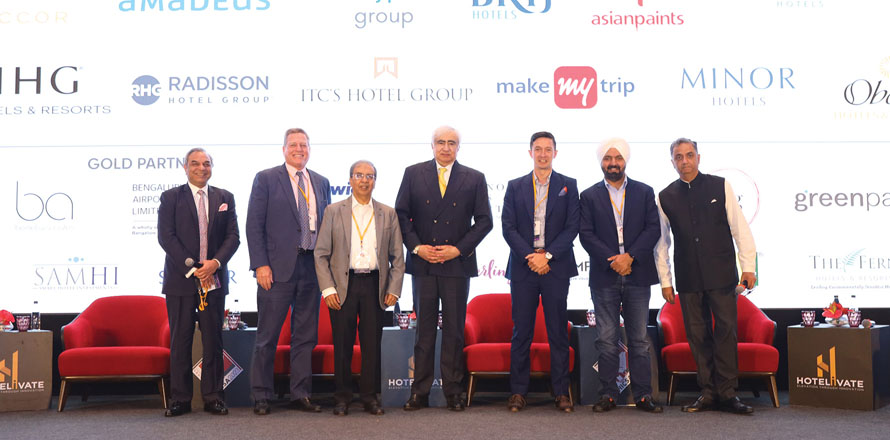
Some of the factors that are fueling this growth story are:
- The manufacturing sector in India is growing rapidly and is pegged to contribute 25% of the country’s GDP by 2025.
- Companies like Foxconn, Apple, Samsung, ABB, Hyundai, Boeing, Lowe’s and many more are either entering the country or expanding their production capacity.
- These industries act as major contributors for room nights at hotels not only in big cities but also in smaller cities where these manufacturing facilities are established.
- India already is the third largest aviation market behind the United States and China and will continue to grow further with multiple new airports in the pipeline.
- The government is investing heavily in building world class infrastructure in the form of highways and rail connectivity across the country. Highway construction in India has grown at a rate of 17% CAGR between 2015/16 to 2020/21.
- India is currently the host country for the G20 summit and that is driving significant inbound traffic to the country. Such an event creates a lot of visibility for India and showcases its destinations and hospitality offerings to the world.
- International sporting events related to cricket, hockey, football and kabaddi are finding a strong footing in India. Having developed state-of-the art infrastructure for sporting events like the IPL, Cricket World Cup, Hockey World Cup, these are now driving growth not only for hotels but for the entire economy. The belief is that sports will have an even bigger role to play in the future.
- India is among few countries in the world that boasts of a larger-than-life wedding culture. ‘Big Fat Indian Weddings’ have a robust and widespread footprint and are a major contributor to demand for hotels. Because weddings happen on such a large scale, the wedding season sees most hotel markets operating at peak rate levels.
Looking at the above trends, the sense of optimism is not ours alone but is shared by hotel investors and brands across the industry. All domestic and international hotel brands have robust expansion plans as the foray into the Indian hospitality market.
- The total supply of hotel rooms in the Indian hospitality markets stands at approximately 1,54,000. This number is expected to reach approximately 2,00,000 by 2026/27.
- One strategy that allows hotel brands a brisk expansion opportunity is in the form of conversion of existing independent hotels to branded hotels. Almost all hotel brands have created the concept of a soft brand. For example, IHCL created a brand called IHCL SeleQtions, Radisson has the Radisson Individuals brand, Marriott operates the Autograph Collection and Tribute Portfolio. These sub-brands allow independent hotel owners to maintain the identity of their hotels while at the same time leverage the marketing and distribution muscle that these reputed brands have to offer.
- In the last one year, approximately 25% of all hotel expansions happened in the form of conversions and this trend is expected to continue.
- With room rates across Indian hotels having increased by close to 25% compared to 2019 levels, the important question is whether this upswing is a result only of pent-up demand or is this trend here to stay.
- appropriate for the quality experience that Indian hotels have to offer.
 Our firm conviction is that Indian hotels have always offered quality accommodation and top-notch service. In the past, Indian hotels were not rewarded adequately for the level of service it provided. We therefore believe that these elevated rates are warranted and likely to stay.
Our firm conviction is that Indian hotels have always offered quality accommodation and top-notch service. In the past, Indian hotels were not rewarded adequately for the level of service it provided. We therefore believe that these elevated rates are warranted and likely to stay.
The 18th Hotel Investment Conference – South Asia (HICSA) was held in Bengaluru between 11th and 13th April 2023. The conference was attended by hotel owners, operators, developers, architects, consultants, and other hospitality professionals from a total of 15 countries with close to 600 attendees. HICSA 2023 kicked off with a golf tournament followed by an owners-only meet on day one at the JW Marriott Resort Prestige Golfshire Resort & Spa. The main conference was held over the next two days. Speakers who addressed delegates at the conference included a celebrated list of hospitality industry professionals including Anthony Capauano, President and CEO Marriott International, Puneet Chhatwal, Managing Director and CEO at IHCL, Chris Nassetta, President and CEO of Hilton, Jitu Virwani, Chairman and MD, Embassy Group, and Dimitris Manikis, President and MD-EMEA, Wyndham Hotels and Resorts, Megna Shankaranarayanan, Industry Head – Travel & Food Tech, Google, Elie Younes, Executive VP and Global Chief Development Officer, Radisson Hotel Group, just to name a few.
ABOUT THE AUTHOR
Nabeel Ahmed works for Hotelivate, the owning company that organises HICSA annually.


